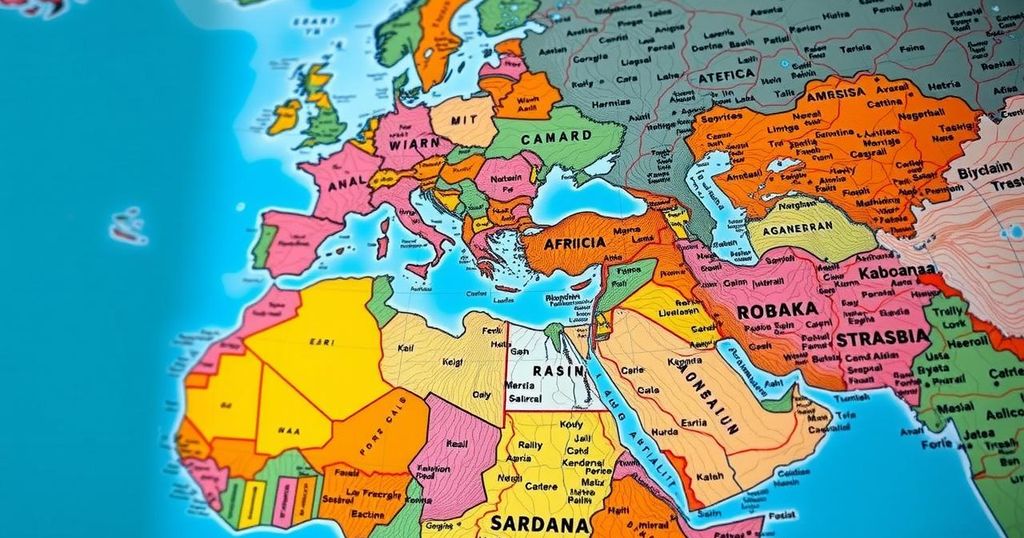Global news
AFRICA, ASIA, DATA ANALYSIS, DIPLOMACY, FCDO, FOREIGN OFFICE, INTERNATIONAL COOPERATION, INTERNATIONAL RELATIONS, IRAN, ISRAEL, KINGDOM FOREIGN, COMMONWEALTH & DEVELOPMENT OFFICE, MIDDLE EAST, MOROCCO, UAE, UNITED KINGDOM FOREIGN, COMMONWEALTH & DEVELOPMENT OFFICE
Leila Ramsay
0 Comments
UK Issues Travel Advisories for Morocco, Egypt, UAE, Tunisia, and Israel
The FCDO has issued updated travel advisories for UK tourists to Morocco, Egypt, UAE, Tunisia, and Israel due to rising geopolitical tensions. Travelers are urged to exercise caution, avoid large gatherings, and stay informed about local developments while traveling. The advisories highlight specific areas to avoid due to heightened risks of unrest and terrorism.
The United Kingdom’s Foreign, Commonwealth & Development Office (FCDO) has released updated travel advisories for British citizens planning to visit Morocco, Egypt, the United Arab Emirates (UAE), Tunisia, and Israel. This update is primarily a response to recent military actions and rising tensions in the Middle East, notably concerning Israel’s military operations against Iran and broader regional conflicts. Consequently, British travelers are urged to exercise heightened vigilance and remain informed about local conditions during their travels in these nations. The FCDO emphasizes the necessity for meticulous planning and encourages travelers to avoid large gatherings and adhere to local security directives. Among the analyzed countries, particular caution is advised for Morocco, where the advisory highlights the potential for significant unrest. Travelers are encouraged to remain alert, particularly in crowded locations, as Morocco has augmented security measures following recent regional incidents. Similarly, Egypt presents its own set of travel advisories, advocating that tourists stay away from politically charged areas and avoid travel to the North Sinai region due to elevated terrorism threats. Despite the security assurances in popular tourist spots, visitors are advised to remain vigilant in urban centers. In the UAE, while the country itself remains stable, the FCDO cautions tourists to be mindful of their surroundings in busy areas due to its geographic proximity to conflict zones. Enhanced security measures are in place to ensure the safety of both locals and visitors. Tunisia’s travel advisories point towards increased security in certain regions, urging tourists to avoid militarized zones and to remain cautious regarding public demonstrations. As for Israel, travelers are advised to exercise extreme caution, specifically regarding movements near contentious areas such as the Gaza Strip and the West Bank, due to the volatility of the situation.
Recent geopolitical tensions in the Middle East have prompted the United Kingdom’s Foreign, Commonwealth & Development Office (FCDO) to revise its travel advisories for certain countries. The advisory updates reflect a growing concern regarding security risks for British travelers to Morocco, Egypt, UAE, Tunisia, and Israel amid ongoing military actions and unrest in the region. As a result, the advisories stress the importance of careful planning, heightened awareness, and adherence to local guidelines to ensure the safety of travelers.
In summarizing the FCDO’s updated travel advisories, it is clear that British tourists must prioritize their safety by remaining informed and cautious during their travels. The advisories for Morocco, Egypt, UAE, Tunisia, and Israel underscore the significance of vigilance, avoiding politically sensitive areas, and adhering to local authorities’ recommendations. By understanding the potential risks and maintaining awareness, travelers can navigate these complex situations while still enjoying their visits to these diverse destinations.
Original Source: www.travelandtourworld.com




Post Comment